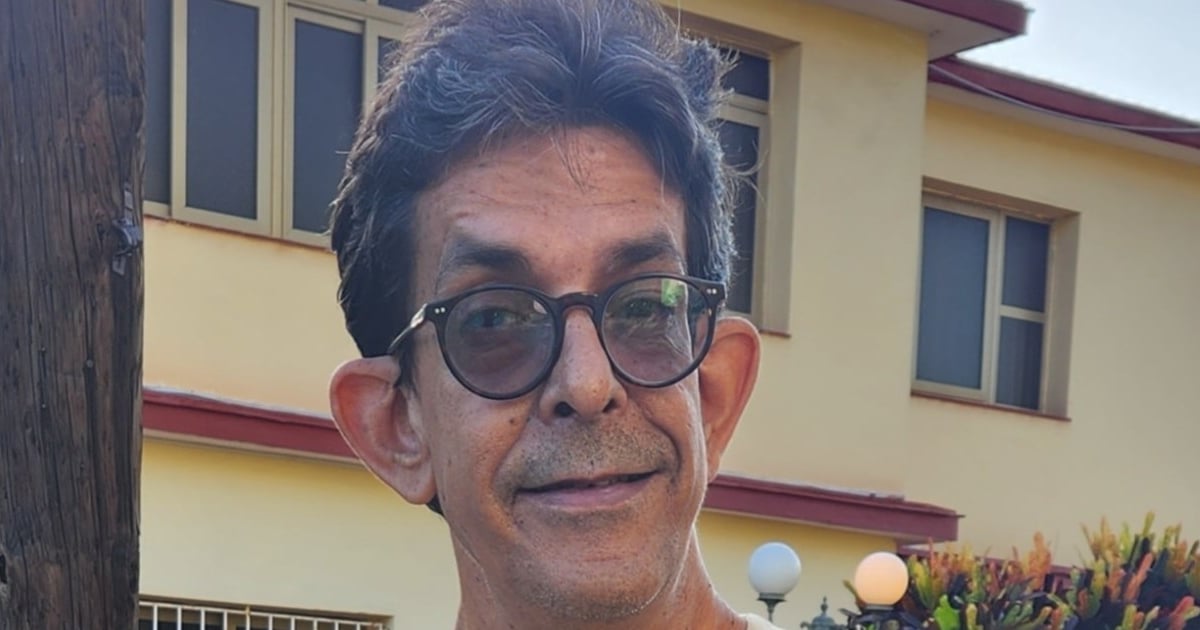Cuban comedian Ulises Toirac has once again delivered a harsh critique on the dire state of affairs in Cuba, warning that the nation is facing an irreversible economic collapse with no hope for recovery. In a Facebook post, he challenged the fundamental basis of the Cuban economic model, which he believes suffers from a "congenital malformation," and forewarned of even greater deterioration by September without significant transformations.
"I saw it coming before the spike in prices and posted it on social media," he wrote. According to Toirac, the arrival of summer, combined with "aberrant" measures like those of ETECSA, has worsened the economic crisis. He emphasized that the current predicament is not due to recent mistakes but the result of "anti-economic formulas in all their magnitude and splendor" being applied.
Toirac argues that the root of the problem lies in a fundamentally flawed economic philosophy. "Economics is economics," he stated simply, meaning that if a country spends more than it earns, it will either fall into debt or collapse, as is happening now.
In a bitter tone, Toirac also criticized the artificial construction of "social achievements" at the expense of productive sectors. "When you divert funds from your economy to make these achievements possible, at the cost of your potential economic engines, you're doing a double disservice to your economy," he asserted.
But this is just one of the many mistakes the government has made over the decades, including excessive centralization, the nationalization of businesses, an overwhelming and ineffective number of university graduates, incoherent agricultural measures, and a fear of wealth generated through work.
Cuba's Economic Missteps and Consequences
Toirac also criticized the government for trying to escape bankruptcy by inventing financial, rather than economic, mechanisms. He denounced that for years the country has sought to attract foreign currency without generating real production. "They gambled on currency hunting instead of developing a solid production strategy," he said.
This approach has led to the current situation, with blackouts lasting more than 30 hours. "There's no electricity because there's no electrical system, and there's no money to meet the demand," he added. Without electricity, he stressed, it is impossible to produce goods to reverse the situation.
His prediction is as clear as it is grim: by September, things will be even worse. "Keep playing at nonexistent recovery while the sick, elderly, and children die. This economy doesn't need plans; it requires drastic structural changes to avoid a society without control," he emphasized.
The Human Cost of Economic Collapse
In late May, Toirac lit up social media with an analysis warning that "summer is going to be rough," painting a bleak picture of prolonged blackouts, soaring inflation, and resource-deprived hospitals. His words described not just an energy crisis but the disintegration of the entire national infrastructure.
With sharp phrases like "the Cuban peso isn't worth even the shell," he exposed an economy applying neoliberal measures without the mechanisms of a functional market, which only exacerbates poverty and vulnerability among the population.
In another post, he recounted a conversation that left him "speechless with horror" upon learning that residents of Pinar del Río have adapted to living with 18-hour daily blackouts. For Toirac, this collective resignation is a psychological defense mechanism against the collapse, but at too high a cost.
The crisis, he reminded, extends far beyond energy. The shortage of medicines, loss of food due to lack of refrigeration, service interruptions, and the absence of basic products have created an environment of daily survival.
Toirac compared the current situation to countries occupied during wars, except in Cuba, he warned, there are no allies advancing or friendly troops liberating. "That's not happening here. Not in two years, ten, or ever," he wrote.
Instead of technical solutions, Toirac calls for major surgery: dismantling the inefficient pillars of the system and building a new model from scratch. His reflection, shared and commented on by thousands, offered no solace but a stark warning: without production, electricity, and real reforms, the future holds much worse.
Understanding Cuba's Economic Crisis
What did Ulises Toirac say about the Cuban model?
Ulises Toirac criticized the Cuban economic model as having a "congenital malformation" and warned of worsening conditions without major transformations.
How has the arrival of summer affected Cuba's economic crisis?
The arrival of summer, along with certain measures, has exacerbated Cuba's economic crisis, leading to longer blackouts and further economic decline.
What are the consequences of the current economic strategy in Cuba?
The current economic strategy has resulted in blackouts, lack of electricity, and an inability to produce goods, thereby worsening the overall situation.
